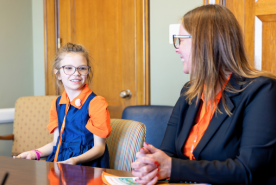It’s been just over a year since the COVID-19 pandemic began in the United States, causing countrywide lockdowns and huge changes to everyday life. At about the same time, we started hearing about pandemic fatigue – a term coined by the World Health Organization (WHO) and defined as “a lack of motivation to follow recommended COVID-19 protection behaviors.”
At this point – to one degree or another – just about everyone is experiencing pandemic fatigue. For kindergarteners who are attending school online, high school seniors who will miss their proms and graduations, office-based consultants and employees who are now working from home, grocery store cashiers and delivery people, and medical frontline medical workers – it’s been a challenging year – and frankly, most people are feeling frustrated and anxious. And yes, most are feeling tired too.
Whether you are going into work or working from home, the COVID-19 pandemic has probably, in some way, changed the way you work – and maybe even the way you feel about your job. Fear and uncertainty about COVID-19, workplace stress and other strong emotions can be overwhelming. During this pandemic, it is important that you recognize what stress feels like so you can take the necessary steps to stay physically healthy, develop new coping skills and also to know where you can go if you need help.
Recognize the signs and symptoms of stress
Stress can take a number of different forms and include feeling:
- Irritable, angry, or in denial
- Uncertain, nervous, or anxious
- Tired, overwhelmed, or burned out
- Sad or depressed
- Like you have no motivation, trouble concentrating and sleeping
It is natural to feel stress, anxiety, grief, and worry during the COVID-19 pandemic. Your emotions can also lead to:
- Changes in appetite, energy, desires, and interests
- Difficulty concentrating and making decisions
- Difficulty sleeping or nightmares
- Physical reactions, such as headaches, body pains, stomach problems, and skin rashes
- Worsening of chronic health problems
- Worsening of mental health conditions
- Increased use of tobacco, alcohol, and other substances
Work stress is higher than ever
Many people are having trouble adapting to new methods of working. If you were office-based and you’re now working from home, you may be feeling isolated, lonely and miss your colleagues. Other people may be working longer hours and additional shifts. And others may have had their hours cut or are newly unemployed. Whatever your personal situation is, the pandemic has caused even more work-related stresses and fears, which include:
- Concern about the risk of being exposed to the virus.
- Taking care of personal and family needs while working.
- Changes to the way you do your work.
- Lack of access to the tools and equipment needed to perform your job.
- Feeling that you are not contributing enough to work or guilt about not being on the frontline.
- Uncertainty about the future of your workplace and/or employment.
- Learning new communication tools and dealing with technical difficulties.
- Adapting to a different workspace and/or work schedule.
Healthy ways to cope
As trying as these times are, here are some steps you can take to help manage your stress.
- Talk to your coworkers, supervisors, and employees about job stress either virtually or while maintaining social distancing (at least 6 feet)
- Identify the causes of your increased stress and work with your colleagues to find solutions.
- Job expectations should be understood by everyone.
- Ask about mental health resources that may be available to you through your community or workplace.
- Increase your sense of control by developing a consistent daily routine when possible – ideally one that is similar to the schedule you had before the start of the pandemic.
- Get enough sleep and keep to a regular schedule.
- Take breaks from work to stretch, exercise, or check in with your supportive colleagues, coworkers, family, and friends.
- Spend time outdoors, either being physically active or relaxing.
- If you work from home, try to set a regular time to end your work for the day.
- Practice mindfulness and relaxation techniques.
- Do activities you enjoy when you are not working.
- Remind yourself that everyone is in an unusual situation with limited resources.
- Know the facts about COVID-19, but take breaks from watching, reading, or listening to news stories, including social media – constant pandemic news can be upsetting and mentally exhausting.
- Connect with others – speak to people who you trust about your concerns, how you are feeling, or how the COVID-19 pandemic is affecting you.
- Keep in touch through phone calls, email, text messages, mailing letters or cards, video chat, and social media.
- Check if loved ones need help -- supporting others can improve your sense of control, belonging, and self-esteem.
- If you feel like you may be misusing alcohol or other drugs (including prescription drugs) as means of coping – know that help is available and reach out for help.
- If you are being treated for a mental health condition, continue with your current treatment and be aware of any new or worsening symptoms.
What comes next?
The COVID-19 pandemic has had a major effect on our lives. Many of us are facing challenges that can be stressful, overwhelming, and cause strong emotions in adults and children. Public health actions, such as social distancing, continue to be necessary to help reduce the spread of COVID-19, but they can also make us feel even more isolated and lonelier, increasing our stress and anxiety levels. Learning to cope with stress in a better way will help you, the people you care about, and those around you become stronger and healthier.








